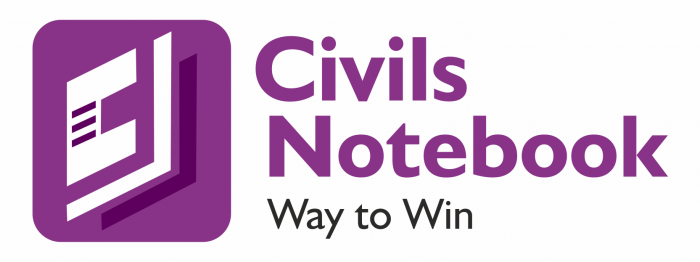Mathura-Vrindavan aims to become a carbon neutral tourist destination by 2041
- Mathura-Vrindavan, one of India’s largest pilgrimage centers, aims to become a “net zero carbon” tourist destination by 2041, an Uttar Pradesh government official told The Hindu.
- This means that tourist vehicles will be banned from the entire Braj area, which includes famous pilgrimage centers such as Vrindavan and Krishna Janmabhoomi. Instead, only electric vehicles used as public transport will be allowed to enter the area.
- All 252 water bodies and 24 forests in the area will also be revived, officials said about the UP government’s draft redevelopment plan.
- According to the plan, the annual pilgrim-tourist footfall of the Braj region is expected to multiply from the current level of 2.3 crore to six crore by 2041.
- helping the local economy does not have a harmful effect on the environment,” said a top official of the Braj Teerth Vikas Parishad, the nodal agency for implementing the plan that. While the draft masterplan was submitted in March, the strategy document will be submitted this month after which the plan will be released for public consultation.
- To achieve net zero carbon emissions status, greenhouse gas emissions must be reduced as close as possible to zero, with the remaining emissions absorbed from the atmosphere, by oceans and forests for example.
- To facilitate this in Mathura-Vrindavan, the plan divides the entire region into four clusters, each containing two of the eight key cities.
- “The idea is to form a small circuit called the ‘Parikrama Route’ that pilgrims can take either on foot or by electric vehicle.
- If they want to go from one destination to another, they can use an electric minibus,” Subham Meena of Design Associates, the company that has drawn up the plan, told The Hindu.
- This will be the first carbon neutral master plan for a tourist destination in India
MCD elections to be held on December 4
- The Municipal Corporation of Delhi (MCD) elections will be held December on 4, while the counting of votes will be done on December 7
- The Model Code of Conduct comes into force in the national capital from Friday itself
- The filing of nominations will begin from November 7 and the last date for the same is November 14
- The polls were abruptly postponed in March this year when the Centre announced the civic bodies will be merged.
- A unified MCD came into being in May.
- The elections were originally scheduled to be held in April 2022. On March 9, the commission called a press conference to announce the schedule before announcing the Centre has sent a note on unifying the three civic bodies.
- Parliament passed a law to unify the three municipal corporations, which also mandated a reduction in the number of wards from 272 wards to 250 wards, prompting the delimitation exercise.
2-days G7 top diplomats talk held in Germany
About Group of Seven (G7)
- It is an intergovernmental organisation that was formed in 1975.
- The bloc meets annually to discuss issues of common interest like global economic governance, international security and energy policy.
- The G7 countries are the UK, Canada, France, Germany, Italy, Japan and the US.
- All the G7 countries and India are a part of G20.
- The G7 does not have a formal charter or a secretariat. The presidency, which rotates among member countries each year, is in charge of setting the agenda. Sherpas, ministers and envoys hammer out policy initiatives before the summit.
- As of 2022,G7 countries make up 10% of the world’s population, 31% of global GDP, and 21% of global carbon dioxide emissions, according to the Summit website. China and India, the two most populous countries with among the largest GDP figures in the world, are not part of the grouping.
- In all G7 countries, annual public sector expenditure exceeded revenue in 2021. Most G7 countries also had a high level of gross debt, especially Japan (263% of GDP), Italy (151%) and the US (133%).
- The G7 countries are important players in global trade. The US and Germany in particular are major export nations. Both sold goods worth well over a trillion US dollars abroad in 2021.
G20 Summit to be held next week in Bali
About G20
- The G20 was formed in 1999 in the backdrop of the financial crisis of the late 1990sthat hit East Asia and Southeast Asia in particular.
- It aims to secure global financial stability by involving middle-income countries.
- Together, the G20 countries include 60 % of the world’s population, 80 % of global GDP, and 75 % of global trade.
- Members:
- Argentina, Australia, Brazil, Canada, China, France, Germany, India, Indonesia, Italy, Japan, Republic of Korea, Mexico, Russia, Saudi Arabia, South Africa, Turkey, the United Kingdom, the United States and the EU.
- Spainis invited as a permanent guest.
- Argentina, Australia, Brazil, Canada, China, France, Germany, India, Indonesia, Italy, Japan, Republic of Korea, Mexico, Russia, Saudi Arabia, South Africa, Turkey, the United Kingdom, the United States and the EU.
- Presidency:
- The presidency of the G20 rotates every year among members, and the country holding the presidency, together with the previous and next presidency-holder, forms the ‘Troika’ to ensure continuity of the G20 agenda.
- Italy, Indonesia, and India are the Troika countries right now and Indonesia holds the current Presidency.
- The presidency of the G20 rotates every year among members, and the country holding the presidency, together with the previous and next presidency-holder, forms the ‘Troika’ to ensure continuity of the G20 agenda.
- Mandate:
- The G20 has no permanent secretariat. The agenda and work are coordinated by representatives of the G20 countries, known as ‘Sherpas’, who work together with the finance ministers and governors of the central banks.
- The primary mandate of the grouping is for International Economic cooperation with particular emphasis to prevent future financial crises across the world.
- It plays a significant role in shaping the global economic agenda.
- From 1999-2008 the forum exalted from a grouping of Central bank governors and finance ministers to Heads of states.
Ghana will assume presidency of UNSC
About UNSC
- The Security Council was established by the UN Charter in 1945. It is one of the six principal organs of the United Nation
- The other 5 organs of the United Nations are—the General Assembly (UNGA), the Trusteeship Council, the Economic and Social Council, the International Court of Justice, and the Secretariat.
- Its primary responsibility is to work to maintain international peace and security.
- Headquartered at NewYork.
- Members:
- The council has 15 members: the five permanent members and ten non-permanent members elected for two-year terms.
- The five permanent members are the United States, the Russian Federation, France, China and the United Kingdom.
- India, for the eighth time, has entered the UNSC as a non permanent member last year (2021) and will stay on the council for two years i.e 2021-22.
- Each year, the General Assembly elects five non-permanent members (out of ten in total) for a two-year term. The ten non-permanent seats are distributed on a regional basis.
- The council’s presidency is a capacity that rotates every month among its 15 members.
- The council has 15 members: the five permanent members and ten non-permanent members elected for two-year terms.
- Voting Powers:
- Each member of the Security Council has one vote. Decisions of the Security Council on matters are made by an affirmative vote of nine members including the concurring votes of the permanent members. A “No” vote from one of the five permanent members blocks the passage of the resolution.
- Any member of the United Nations which is not a member of the Security Council may participate, without vote, in the discussion of any question brought before the Security Council whenever the latter considers that the interests of that member are specially affected.
- India in the UNSC:
- India took active part in the formulation of the Universal Declaration of Human Rights (UDHR) in 1947-48 and raised its voice passionately against racial discrimination in South Africa.
- India has played its part in formulating decisions on several issues such as admitting former colonies to the UN, addressing deadly conflicts in the Middle East and maintaining peace in Africa.
- It has contributed extensively to the UN, particularly for the maintenance of international peace and security.
- India has taken part in 43 Peacekeeping mission with a total contribution exceeding 160,000 troops and a significant number of police personnel.
- India’s population, territorial size, GDP, economic potential, civilisational legacy, cultural diversity, political system and past and ongoing contributions to UN activities make India’s demand for a permanent seat in the UNSC completely rational.
- Issues with UNSC:
- Absence of Records and Texts of Meetings:
- The usual UN rules don’t apply to the UNSC deliberations and no records are kept of its meetings.
- Additionally, there is no “text” of the meeting to discuss, amend or object.
- Powerplay in UNSC:
- The veto powers that the UNSC’s five permanent members enjoy is an anachronism in this age.
- The UNSC in its current form has become a constraint in understanding the international changes and dynamics in the area of human security and peace.
- Absence of Records and Texts of Meetings:
first National Natural Farming Mission committee meeting held at Krishi Bhawan
Vadodara become the 2nd to issued Municipal Bond
Isudan Gadhvi named as AAP’s Chief Ministerial candidate for Gujarat
US Treasury Secretary Janet Yellen will be visiting India to strengthen US-India economic ties
National Legal Services Authority (NALSA) Campaign has been launched by Justice Chandrachud to promote inclusivity
World Tsunami Awareness Day observed on 5 November
From April 2023 safety tests for electric vehicles become mandatory by Ministry of Heavy Industries
Praggnanadha won the Asian Continental Open Chess championship
Source : THE HINDU

